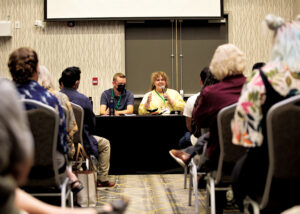I’m finding it difficult to respond without cynicism as I think about the violent events which occurred in Ottawa this past week. By now, we’ve heard the sequence of events repeated hundreds of times on the news, and we’ve heard Prime Minister Stephen Harper’s interpretation of events repeated, too. He was quick to label this a “terrorist attack” and to speak of it as an unprovoked attempt to destroy our “freedom” and “democracy” – and, I might add, he was also quick to bring God into it at the end of his speech, which caused me deep discomfort.
As a relatively politically-aware, pacifist Christian, I’m greatly saddened by this kind of violence, and of course it feels closer to home when it occurs in a Canadian city (after all, I have friends who live in Ottawa!). But am I surprised by this kind of violence? No, I can’t really say that I am. I see it as a symptom of a larger problem in our country right now. You see, as Mennonites living in Canada, we used to have more in common with the values of our government. Canada had a reputation of leadership in relief and development and involvement in peacekeeping missions with the United Nations. While these don’t align exactly with the kind of nonviolent resistance and peacemaking work we do as a church, there was some significant overlap. But Canada has changed a lot under Stephen Harper’s leadership, and I’m not sure if we as Mennonites are paying enough attention or protesting loudly enough.
Since he was killed by police inside the Parliament Building, no one can say exactly why Michael Zehaf Bibeau did what he did – though the emerging details about his drug abuse and possible mental health problems which led to his living in a homeless shelter are making it increasingly simplistic to paint him as the calculating and well-connected “terrorist” that Harper has made him out to be. Whatever motivated this particular act of violence, it seems clear that it is one sign among several of a new, more violent Canada. In joining the “latest” war in Iraq and Syria in an active, military capacity, for example, our nation is becoming increasingly militaristic and violent overseas – largely through borrowing the ideas, rhetoric, and government-spending priorities that our neighbor to the South is known for (think dramatically increased military spending (how much were those fighter jets again?) and the scrapping of the long gun registry).
But this shift in priorities is also linked to so many interconnected inequalities which are being downplayed and de-prioritized within our country (remember the cuts to Mennonite Central Committee and other KAIROS church organizations, cuts to the Circles of Support and Accountability program, the hundreds of virtually unacknowledged missing and murdered Indigenous women?). Some of these inequalities affected this situation – racial and economic inequalities, homelessness and mental health issues, prejudice against Muslims. While I’m not saying that Stephen Harper is directly responsible for the acts of violence in Ottawa, I think his leadership is oriented toward increasing some kinds of violence, especially military and economic – and that kind of talk and action, in joining the spiral of violence, provokes and creates other kinds of violence, as the events in Ottawa have tragically demonstrated. Jesus himself recognized that violence has a tendency to spiral when he said, “Those who live by the sword will die by the sword” (Matt. 26:52).
As a Mennonite church, as followers of the Prince of Peace, our response to such violence is of course, to pray and lament for both the victims and the perpetrators. But I would challenge us to go a bit further in our response as well. It’s time to let our government know, through our words and our actions, that we don’t support this turn toward violence, and that only the way of peace can lead to lasting peace, both within our country and in the rest of the world. If we don’t speak up, who will? And if not now, when?





